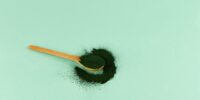What’s the latest in prebiotic research? April Edition
This monthly feature provides an overview of some of the latest studies on prebiotics. We’ll share key findings and insights from the studies. Have a study you’d like us to cover? Email GPA Communications Director Traci Kantowski traci@prebioticassociation.org.
Physical activity enhances the improvement of body mass index and metabolism by inulin: a multicenter randomized placebo-controlled trial performed in obese individuals
This recent study investigated, in both preclinical and clinical interventions, the interaction between inulin intake as prebiotic intervention and physical activity in the context of obesity.
Key takeaways: When exploring the potential benefits of prebiotics, in this case inulin, on the gut microbiota and related health outcomes it is important to consider all variables that may also influence these outcomes. This may explain why previous studies have suggested that improvements in metabolic alterations and obesity after inulin intervention in obese individuals varies significantly. In this study adding physical activity to the inulin intervention improved metabolic parameters and gastrointestinal tolerance. This study pinpoints the importance of diet for mediating beneficial effects of exercise in metabolic disorders.
Access the study: https://pubmed.ncbi.nlm.nih.gov/35351144/
Rodriguez J, Neyrinck AM, Van Kerckhoven M, Gianfrancesco MA, Renguet E, Bertrand L, Cani PD, Lanthier N, Cnop M, Paquot N, Thissen JP, Bindels LB, Delzenne NM. Physical activity enhances the improvement of body mass index and metabolism by inulin: a multicenter randomized placebo-controlled trial performed in obese individuals. BMC Med. 2022 Mar 30;20(1):110. doi: 10.1186/s12916-022-02299-z. PMID: 35351144; PMCID: PMC8966292.
Role of Brain-Gut-Microbiota Axis in Depression: Emerging Therapeutic Avenues
This recent review article discusses the role of the gut microbiota in major depressive disorder (MDD) via the gut brain axis. The focus is on altering the microbiota to improve depressive symptoms via diet, specifically prebiotics and probiotics the efficacy of fecal transplant is also discussed.
Key takeaways: Recent studies suggest correlations between the altered gut microbiota and major depressive disorder (MDD). Several studies support this connect, one suggests that when microbiota from stressed mice is transplanted to healthy mice the healthy mice become stressed. Thus, normalizing the gut microbiome is a potential treatment for MDD. The use of probiotics, prebiotics, synbiotics and proper diet have shown the beneficial effects in the regulation of depression.
Access the study: https://pubmed.ncbi.nlm.nih.gov/35352640/
Bhatt S, Kanoujia J, Mohanalakshmi S, Patil CR, Gupta G, Chellappan DK, Dua K. Role of Brain-Gut-Microbiota Axis in Depression: Emerging Therapeutic Avenues. CNS Neurol Disord Drug Targets. 2022 Mar 29. doi: 10.2174/1871527321666220329140804. Epub ahead of print. PMID: 35352640.
Valorization of citrus peel waste for the sustainable production of value-added products
This review article discusses the global challenge of mismanaged waste specifically that associated with fruit processing. In light of the recent attention to upcycling they discuss the potential uses for citrus waste particularly for its pectin and focus on improving methods for extracting the pectin.
Key takeaway: Citrus waste is huge issue globally. One solution is to develop methods to extract the valuable bioactive components of the citrus waste, specifically pectin. Pectin extracted from citrus peel has a greater potential of gelling, thickening, water trapping, etc. which makes it versatile in various industrial, food, and non-food applications. Citrus pectin enzymes have been shown to support probiotic growth and regulate gut microbiota to a greater extent than other prebiotics and may therefore by a healthy alternative to other food additives used for similar purposes. In addition to be healthier, it supports responsible agricultural processes via an upcycling approach.
Access the study: https://pubmed.ncbi.nlm.nih.gov/35351555/
Sharma P, Vishvakarma R, Gautam K, Vimal A, Kumar Gaur V, Farooqui A, Varjani S, Younis K. Valorization of citruspeel waste for the sustainable production of value-added products. Bioresour Technol. 2022 Mar 26:127064. doi: 10.1016/j.biortech.2022.127064. Epub ahead of print. PMID: 35351555.
This list was curated by Susan Hewlings, Ph.D., R.D., Director of Scientific Affairs Nutrasource/GRAS Associates



